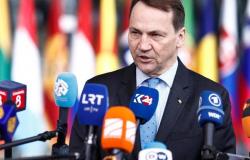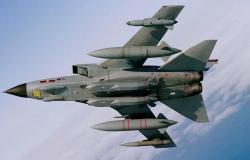It was pure coincidence: on March 8, Turkish President Recep Tayyip Erdogan made it clear that the local elections on March 31 are his last. At the same time, the long-awaited book by Stian Bromark “Turkey. The land between two worlds”.
If you are primarily interested in the rich and fascinating history of the hundred-year-old Republic of Turkey with a historical look back at the Ottoman Empire, you can read the book from the beginning. If you are curious about the present and want to know why Erdogan plans his fate, you can start with the book’s last chapter.
On February 26, Erdogan turned 70 – no age for a man who in many ways is in the same class as Donald Trump and Vladimir Putin when it comes to believing in himself.
Everything indicated that, through parliamentary antics, he would manage to make himself leader for life. Now he gives up in four years.
Because something has happened in Turkey.
WITH TURKEY-BOOK: Stian Bromark has a background as a journalist, literary critic, translator and publishing editor. Now he has written the book “Turkey. The land between two worlds.” Photo: Nina Hansen / Dagbladet.
view more
The young are the hope
Recep Tayyip Erdogan has weakened politically in recent years. And here Stian Bromark brings in the youth, many of them born around 2003 when Erdogan took over as president, and who thus witnessed economic growth and optimism.
Erdogan’s religious party, the AKP, initially stood for a policy that many called Islamic-democratic, a kind of Islam light. More democratic freedoms were introduced and Turkey seemed to be on its way to joining the EU.
Then, within a few years, most things turned around, EU membership faltered, Erdogan became more authoritarian, freedom of speech was weakened and prisons were once again filled with political prisoners.
And not least, Turkey has been teetering on the brink of bankruptcy for the past five years.
In autumn 2022, inflation was 85 per cent. In mid-November last year, Erdogan had to increase the rent to 40 percent, and in January this year it was reported that there was a shortage of essential goods in the shops.
Modern and secular
And this is where Bromark’s analysis comes in: Almost half of Turkey’s inhabitants are under 30 years of age. Half of these again are between 15 and 29 years old.
Surveys indicate that Turkey’s young people have become far more secular, modern and tolerant in recent years.
Will there be no end?
They are experts on social media and use Facebook and X (Twitter) to inform themselves, as entertainment and to mobilize when they think the government is doing something wrong. They are urban, they want to have a job, earn money, have a drink in the park and kiss in the street, as Bromark writes.
Today’s Turkish women want to be the head of their own house and have better finances than their mothers and grandmothers had, regardless of whether they wear a veil or not.
Perhaps Bromark is a bit optimistic, because it is a fact that religion is also strong among young people. When Erdogan came to power, 60,000 children attended religious schools, in 2017 the number was 1.1 million. Religious education is compulsory in all schools.
Will vote with my wallet
But Bromark doesn’t just point to the youth, but also people in general. Although the Turks have so far often voted with their hearts, they will probably vote more with their wallets now that economic times are bad. It may be one of the reasons why the AKP lost the local elections in Istanbul and Ankara in 2018.
In the book’s last chapter, I would like to know more about today’s Turkish foreign policy.
It took a long time for Erdogan to approve Swedish NATO membership, where he came out particularly harshly against Sweden’s relatively liberal stance towards members of the Kurdish PPK movement, which Erdogan believes is a terrorist organisation.
Sweden’s kneeling down to several of Erdogan’s demands probably benefited the president’s support among Turkey’s many nationalists, but hardly among those who still hope for Turkish EU membership.
And how will it go with Erdogan’s balancing act between Russia and Ukraine in the ongoing war?
Also when it comes to the Gaza war, Erdogan wants to play an important mediating role, but his harsh criticism of Israel’s behavior towards the Palestinians recently has enraged the Israelis. Thus, the Turkish president is unlikely to be important in the effort to bring about a ceasefire or a possible peace solution between the Israelis and the Palestinians.
Contrasts and discord
Turkey has always been full of contrasts and divided between secular and religious. Through years of working with Turkey, Bromark gives an insight into how complex, conflict-filled, contradictory and schizophrenic the country is.
At the same time, in the book we get to know people who give an explanation for why Turkish society is the way it is.
And here are good anecdotes and a lot of new material – also for someone who follows Turkey closely.
I initially wrote that Erdogan is Turkey’s 37th sultan. The Sultan was the head of state and an expression of absolute power in the Ottoman Empire which existed from 1300 until 1922, when the last Sultan was sent into exile.
In the book, Stian Bromark argues well why the Turkish father of the country Mustafa Kemal Atatürk can also be considered a sultan.
Thus, Erdogan must be described as number 38 in a row.






